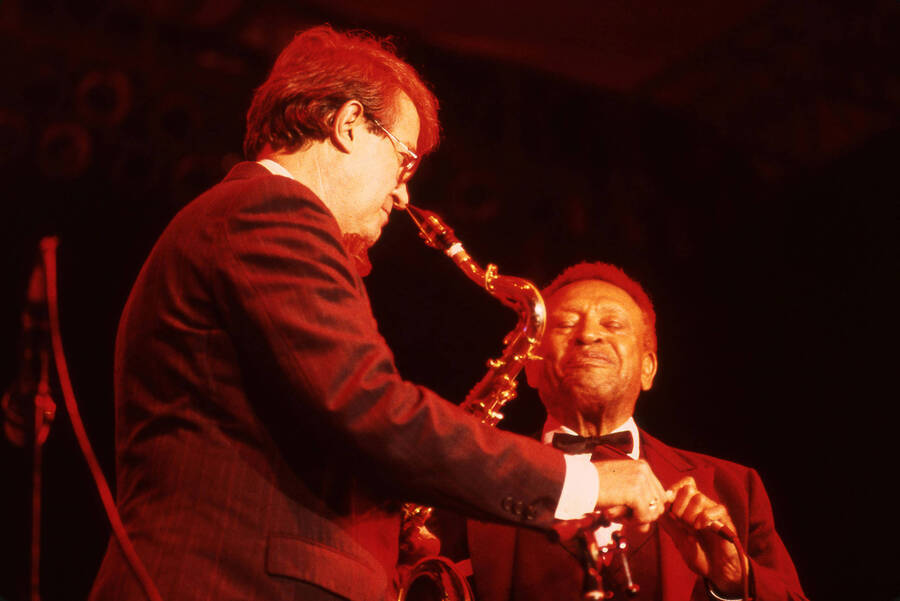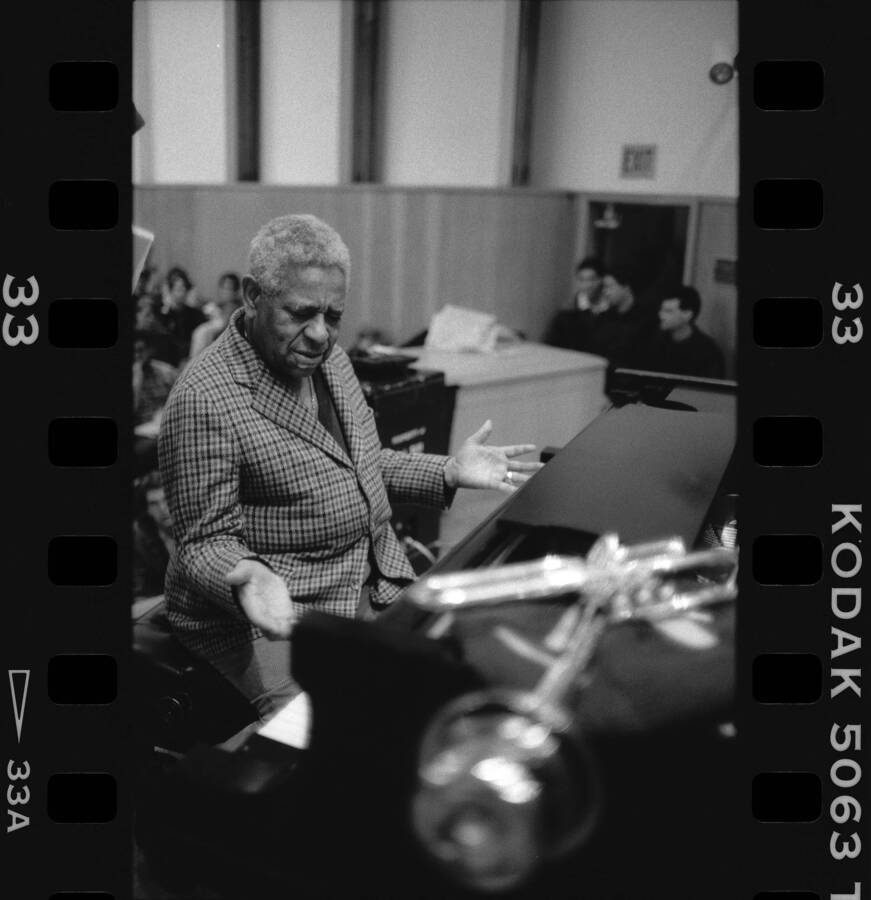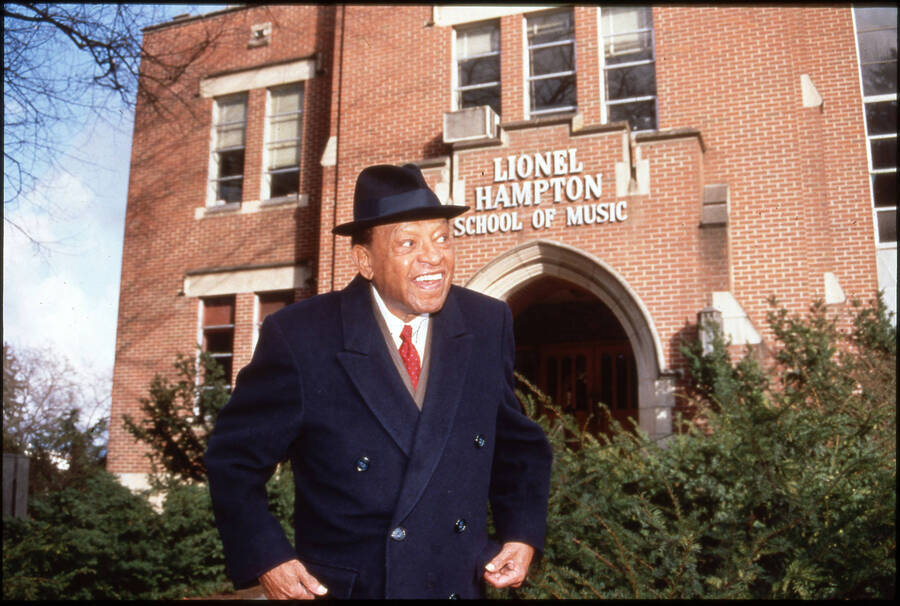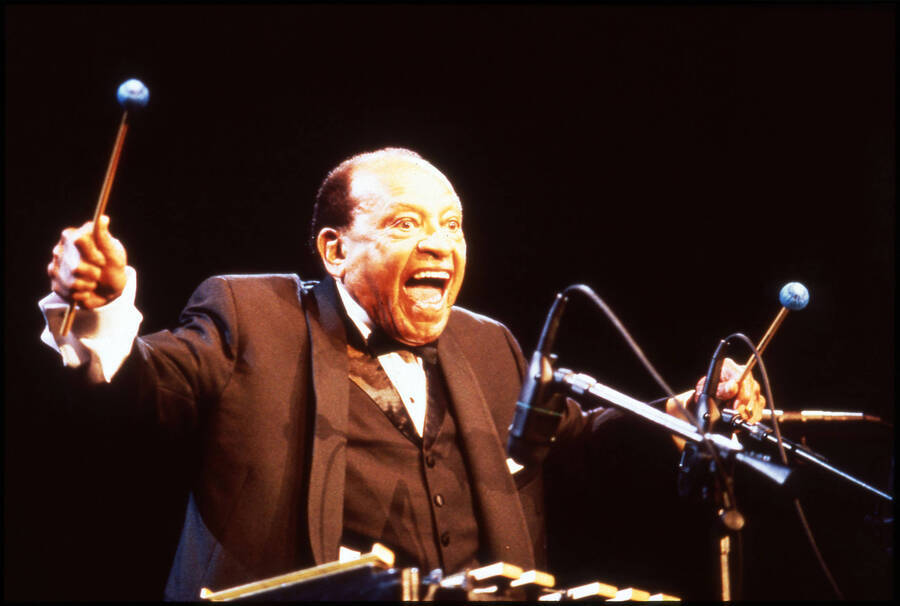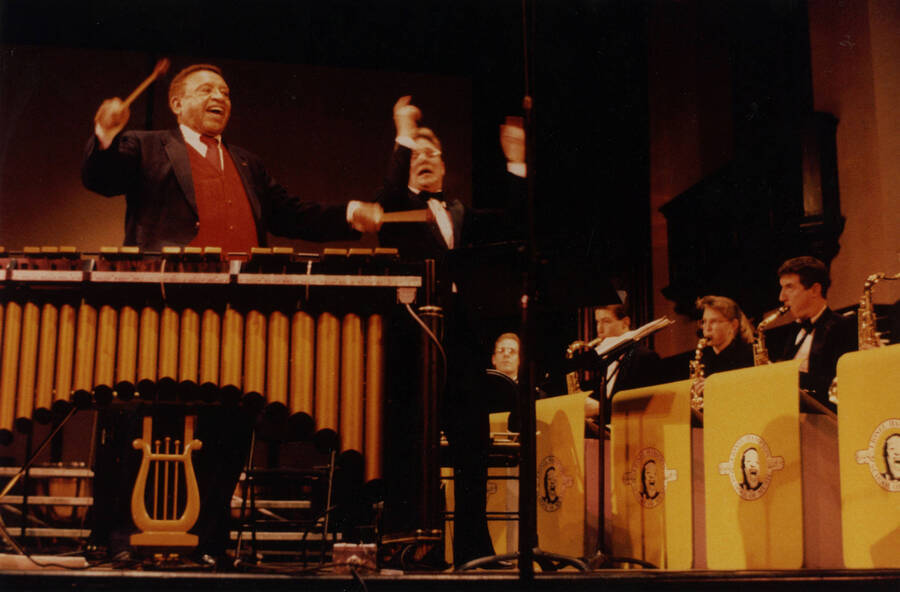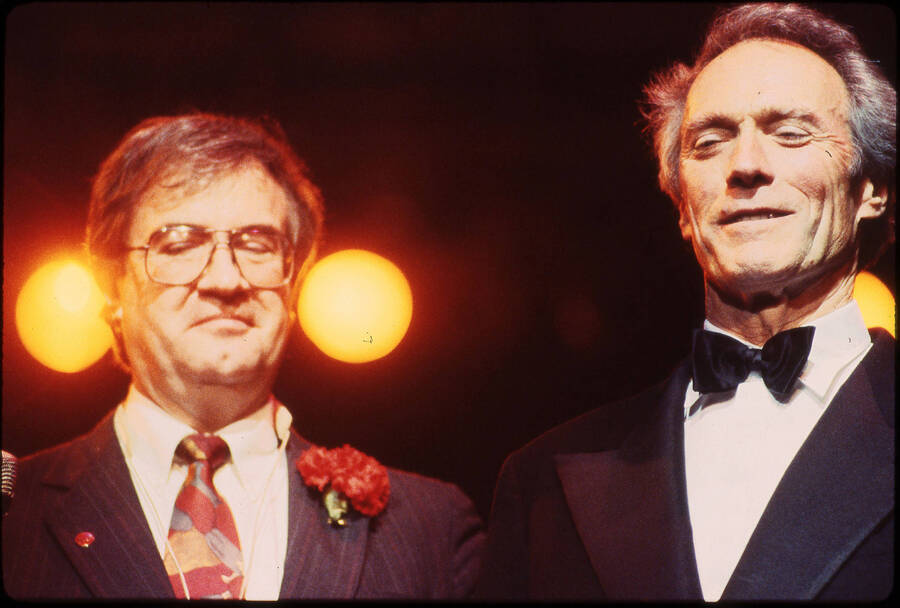Exploring the History of Jazz at the University of Idaho
Spencer Manning, a University of Idaho student pursuing an M.A. in Trumpet Performance, was the recipient of the University of Idaho (U of I) Library’s 2020 Berry International Jazz Fellowship. Over the course of this fellowship, Manning investigated the contents of the Lionel Hampton Papers, the Lionel Hampton Digital Collection, and the Lionel Hampton Jazz Festival Collection, with the hope of learning more about the history of U of I’s jazz festival and Lionel Hampton’s role in that history. His research led him to one of the most important figures of U of I’s jazz festival, Lynn “Doc” Skinner.
Skinner agreed to participate in a series of two virtual interviews with Manning in December 2020, during which the two discussed the history of the festival, the naming of the Lionel Hampton School of Music, Lionel Hampton himself, performances by jazz greats such as Dizzy Gillespie and Ella Fitzgerald, and much more. The interviews can be viewed in full in this collection, and interview highlights are provided below, accompanied by Manning’s commentary.
We sincerely hope that you enjoy learning more about this storied festival through these interviews.
- Clip 1: Dizzy and His Masterclass, 1988
- Clip 2: Ella Fitzgerald at the Festival, 1982
- Clip 3: Naming the Lionel Hampton School of Music, 1987
- Clip 4: Culture of the Festival
- Clip 5: Clint Eastwood at the Festival, 1992
Clip 1: Dizzy and His Masterclass, 1988
For this first clip from Interview 1, Doc Skinner and I discussed the significance of the Masterclass given by Dizzy Gillespie at the jazz festival in 1988. This masterclass was given in the Haddock performance hall in the Lionel Hampton School of music. A few details made this clip stand out among the rest of the interview. In Doc’s response to seeing the image, he recalls the massive attendance at the masterclass. He would go on to note that the line of students to get into the hall, “went clear down to the student union building!” He also notes that students were very engaged in what Dizzy had to say and had many meaningful questions for him.
This is significant too, because in a later recollection Dizzy would get emotional with Doc describing that he had never felt, “loved” like he did by those students. Doc would go on to say that Dizzy is not an outwardly emotional person but was tearing up at the care and compassion shown by the students. It is also significant to note that for a person who suffered the negative effects of segregation and racism it was even more powerful to feel this connection from a room of students of all kinds. No matter who they were, what they looked like, or where they came from, they were moved by the love of the music. This was a powerful moment for me as the interviewer as I felt a connection through story told so vividly by Doc. Also, an amazing moment was realized when I made the connection that the room where I was conducting this interview, was the very room that this masterclass was given. What an amazing coincidence and truly impactful moment! Enjoy.
Clip 2: Ella Fitzgerald at the Festival, 1982
During this part of Interview 1, Doc discusses the significance of Ella Fitzgerald’s presence at the festival. At this time, Hampton was not yet associated with the festival, however, the students’ presence and love for jazz was still very apparent. In this clip Doc discusses how Fitzgerald was moved by being at the festival, almost as if it was divine intervention. After a rousing performance she was invited to the home of the Dean to meet university officials and staff members. Her name brought a lot of attention and reputation to the festival, so her attendance was truly impactful.
Doc recalls staying at the Dean’s home until 4:00 AM as Fitzgerald wanted to give anyone the chance to visit and shake her hand. This detail speaks to the new-found commitment to the festival and its meaning. Doc recalls that she had a very high opinion of the festival and the things they were doing in Moscow, Idaho. At the end of this segment, Doc tells a story about how Fitzgerald gave him a teaching quote that would stick with him throughout the rest of his career. This quote was, “never wish for the end of a phrase.” This is referring to the feeling associated with not wanting something good to end, like the last note of a great tune. The energy and meaning we feel is something that we should all hold on to because even though all good things must come to an end, we should never wish for the end of a “phrase.”
Clip 3: Naming the Lionel Hampton School of Music, 1987
During this portion of Interview 2, I showed Doc the images of the ceremony of the naming of the Lionel Hampton School of Music in 1987. This was valuable for a number of reasons, the first being that this moment was impactful for the school of music here at the University of Idaho as well as for Mr. Hampton. The naming of the school happened two years after the jazz festival was named for Hampton, in 1985. In both cases, these were the first instances of a jazz festival and school of music being named after an African American jazz musician. This was very significant to Hampton as Doc recalls the emotions that flooded Hampton when he heard the school of music would be named in his honor.
Doc also recalls that there were many people in attendance at this event, which is very helpful as there are not records or images of the attendance at the ceremony. Apparently, this was an emotional and joyous occasion as many people felt as if the naming of the festival and the school provided a home for jazz music. Immediately following the ceremony Doc describes a private concert that Hampton performed for the music faculty. This performance was intimate and emotional as Hampton wanted to provide a meaningful presentation for the faculty and staff members. So much so, that Hampton had to be cut off after 45 min of playing to attend other events on campus, when he only wanted to keep playing for them. This relationship with the school of music was important to Hampton as he would keep in close contact with the university and its students in a very personal way.
Clip 4: Culture of the Festival
Throughout the process of the interviews, it was clear that the vibe and culture of the festival was one that fostered a meaningful relationship with jazz music.
This culture was perpetuated by Doc Skinner, Hampton, staff members, and most importantly its attendees. Doc states that the students at the festival were like none that most performers had ever seen before. Students showed a respect for the music as well as those who performed it. With genuine interest and care of the tradition, artists felt welcomed and loved when they were there. This not only made them want to come back, but encouraged them to perform and share their experiences at a deeper level.
Doc speaks to the importance of the music and its effects on people throughout the interviews. Students and artists alike took to the music in a way that heightened the experience for all involved. He recalls in this clip the natural appreciation and admiration that performers and students had for each other. He would go on to say that he would like to say that he put the students up to it, but they did it naturally out of the goods of their own hearts. I think that this speaks to the importance of the culture of the festival and the lasting impacts that it would leave on all parties involved in its festivities.
Clip 5: Clint Eastwood at the Festival, 1992
This clip goes beyond just the music community by including Mr. Clint Eastwood. Going into this project I did not anticipate that he would be a part of my findings and conclusions, but as I was going through the festival archives, I found this photograph of Doc, Hampton and Eastwood on stage together.
By talking to Doc, I was able to learn more about how this moment came to be as well as how it impacted the festival that year. It was such a unique moment that it had to be include as one of the highlights of the project.
Come to find out, Eastwood and Hampton had a conversation when Hampton and his big band came through the city where Eastwood was living, Carmel-By-The-Sea. At that time, Clint Eastwood was the Mayor and his attendance at this performance was quite significant. After Hampton’s performance he had a conversation with Eastwood where he recalls hearing about Eastwood’s love for jazz, and that Eastwood himself played jazz as a pianist. Eastwood told Hampton to let him know if there was anything that he could do for him. To which, Hampton responded by inviting him to the jazz festival in Moscow, Idaho in his name. What came of this was a highly anticipated visit from Eastwood that would add to the reputation to the festival. Doc recalls Eastwood’s humble appearance at the festival and his gracious attitudes towards the attendees. I hope you enjoy.
Spencer Manning is a Master’s student at the University of Idaho Lionel Hampton School of Music, studying trumpet performance. He hopes to go on to finish a DMA in trumpet performance upon completion of his degree. With the aspiration to become a trumpet professor at the collegiate level, Spencer enjoys both performing and studying various musical styles.

